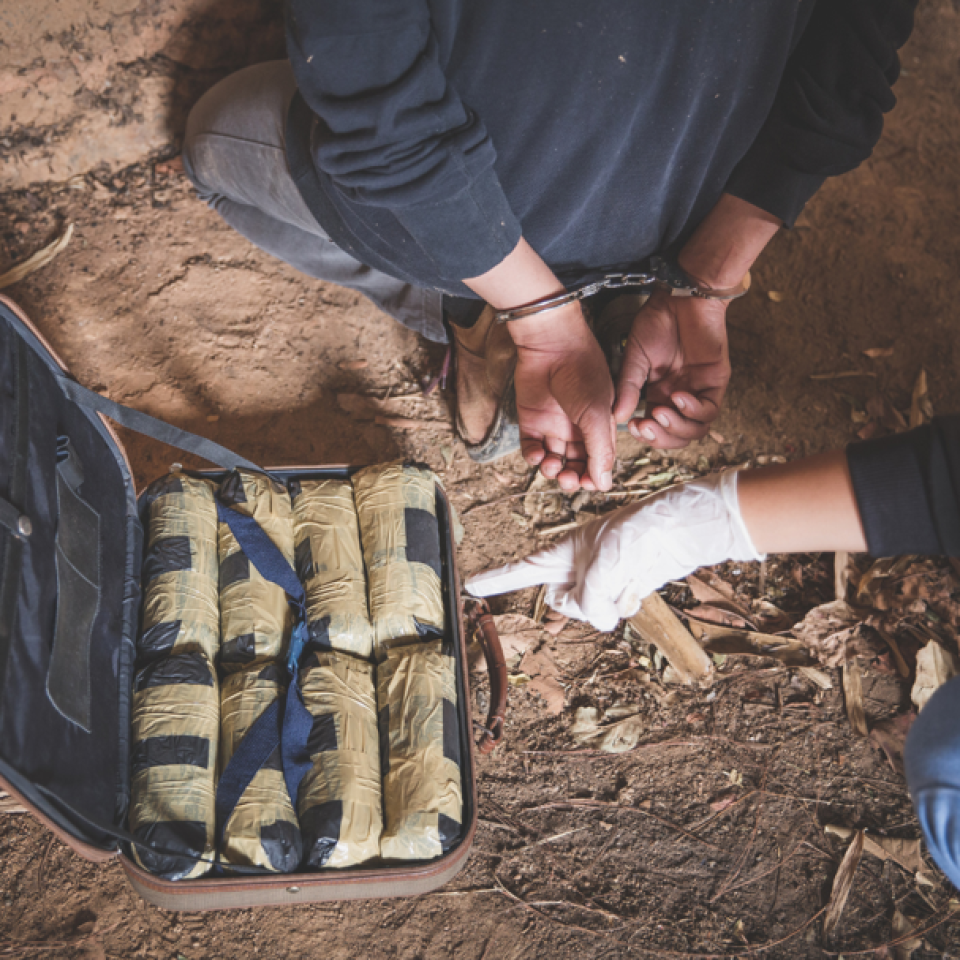
Measuring the effectiveness of drug and crime control policies
Research from Swansea University has highlighted the need to change how drug and crime control policies are measured, leading to changes in approach by governments and international organisations.
Measuring the effectiveness of drug and crime control policies has been a concern for some time. However, it has only recently become a major consideration for the national and international drug and crime control community.
At the same time, a growing number of policy actors recognise important connections between international drug control and issues such as human rights and the United Nations' (UN) sustainable development agenda.
Professor David R. Bewley-Taylor set up the Global Drug Policy Observatory (GDPO) at Swansea University to research drug policy, including how to measure the success of drug-related policies. Since then, he has examined international drug control, and policies dealing with drug trafficking and organised crime in Afghanistan.
Professor Bewley-Taylor's research highlighted the need to change how drug and crime control policies are measured. He argued that a one-dimensional law enforcement approach limits policy innovation by focusing on, for example, the number of arrests, prosecutions, drug seizures, laboratories destroyed, and hectarage of drug crops eradicated.
Instead, he suggested that success should be measured based on the impact of policy on a range of interconnected dimensions, such as:
- human rights
- public health - for example, the number of fatal overdose cases, access to quality harm reduction and treatment services, and the associated prevalence of HIV, hepatitis and tuberculosis among people who inject drugs
- human security and development, for example, levels of drug market-related violence and the numbers of farmers engaged with 'alternative development,' which helps them escape the poverty trap of cultivating illegal drug crops
- synergies between drug policy and the UN's sustainable development goals.
Professor Bewley-Taylor's research helped spark a new conversation on policy and influenced policy initiatives. For example:
At a government level
Professor Bewley-Taylor has been an expert advisor to the UK's Office for Security and Counter Terrorism in its work in areas including the UK's activities at the UN Crime Congress, the UN Commission on Narcotic Drugs and the UN Commission on Crime Prevention and Criminal Justice
He also advised the Norwegian and Swiss governments on how best to measure the effectiveness of their drug and crime policies.
At a UN level
Professor Bewley-Taylor presented research in Geneva as an invited member of an Office of the United Nations High Commissioner for Human Rights (OHCHR) expert group, and was also an expert member of an OHCHR delegation to a UN Office on Drugs and Crime inter-agency meeting on drug policy metrics in Vienna.
At an international non-governmental organisation level
As a leading member of the International Peace Institute’s International Expert Group on Drug Policy Metrics, Professor Bewley-Taylor helped change the Institute's approach to how it assesses the effectiveness of international drug policy and its work with the UN member states.
The International Drug Policy Consortium, a global network of over 190 NGOs focusing on drug policy issues, applied his work to how it monitors and assesses policy.
Research team
Professor David R. Bewley-Taylor - Swansea University
